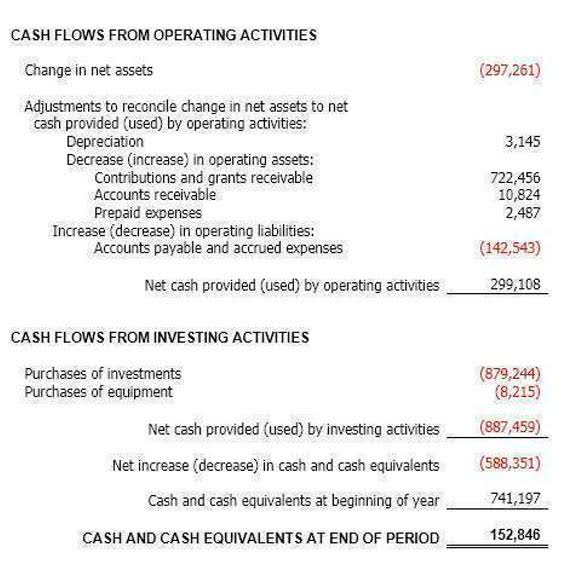
One way to maintain a healthy cash flow is to track all cash inflows and outflows. Having a record of all the transactions can help identify any discrepancies and prevent any potential theft. Additionally, it is important to separate the duties of handling cash between employees. This can prevent any collusion among employees and reduce https://kazi-trading.com/meaning-benefits-examples-2025/ the risk of cash discrepancies. This classification ensures that all cash variances are appropriately accounted for in the business’s financial performance. Overall, understanding over and short is just the first step in addressing cash discrepancies.
- One of the essential parts of safeguarding against over and short cash loss is implementing an over and short prevention plan.
- For instance, from an employee’s perspective, cash discrepancies can occur when they make mistakes during cash handling.
- At the end of the month, assume the $100 petty cash fund has a balance of $6.25 in actual cash (a five-dollar bill, a one-dollar bill, and a quarter).
- These discrepancies can arise due to various reasons such as human error, theft, and fraud.
- The concept of cash over short, also known as “over and short,” is a significant term in accounting.
- In this case, we can make the journal entry for cash shortage by debiting the cash account and the cash over and short account and crediting the sales revenue account.
Cash Over and Short vs. Other Accounting Concepts
- These errors can be caused by human mistakes, system glitches, or external factors such as fraud or theft.
- Cash shortages can happen when the amount of cash in the drawer is less than what is expected based on the transactions made.
- One of the most critical aspects of managing cash is ensuring that it is handled correctly.
- The cash over and short account is used to record the difference between the expected cash balance and the actual cash balance in the imprest account.
- Cash overages are normally recorded in a separate income statement expense account often referred to as the cash over/short account.
It is essential for companies to minimize cash over short incidents by implementing robust internal controls and addressing the root causes of these discrepancies. By prioritizing the prevention of cash over short occurrences, businesses can maintain accurate financial records, preserve their investor base, and safeguard their corporate reputation. These seemingly small discrepancies can add up over time, making it essential for retailers to maintain accurate records and employ effective internal controls to minimize cash over short instances. By closely monitoring and analyzing their cash-over-short accounts, firms can identify any potential issues and take corrective measures, ensuring a more transparent financial reporting process. A salesperson might under-ring an item, resulting in the customer being given change exceeding the actual sale amount.

Best Practices for Cash Handling

A consistently large or fluctuating balance might signal issues with cash management, like errors in counting, recording, or potential theft. The cash-over-short account plays a pivotal role in identifying these discrepancies and helping firms improve their accounting procedures. Classified as an income statement account, unearned revenue it provides vital information on the impact of these variations on a company’s financial results. Contrary to popular belief, not all cash variances are indicative of fraudulent activities; most often, they result from human error or miscommunication among employees and departments.
Strategies for Reducing Cash Shortages

This classification helps in identifying whether these discrepancies are one-off incidents or part of a recurring pattern. Recurring issues may prompt a deeper evaluation of company practices and employee training programs. The insights gained from audit reports can drive strategic improvements in cash management protocols, ultimately strengthening the company’s financial foundation. These discrepancies are not just numerical errors; they have real implications for businesses. They can affect trust with stakeholders, lead to potential losses, and even expose a company to fraud.
- It is essential for a business to have an accurate and efficient cash management system in place.
- Cash discrepancy is one of the most common issues that businesses encounter when handling cash transactions.
- And you can also filter down deeper to see through which payment method expenses are being made.
- The final piece in the puzzle of managing cash over and short is the investment in comprehensive training programs for employees.
- Employee errors can happen when employees make mistakes while handling cash, such as entering the wrong amount or making incorrect change.
- Overall, minimizing cash overages requires a proactive approach to cash management.
Impact on Financial Reporting

After each person responsible counts down the till it should be documented and signed off on. Most places have the individual counting sign off on a deposit slip or even initial the register report. Having one individual responsible for one till (and counting it down at the end of the shift) ensures you can track Cash Over Short back to the individual responsible. By keeping tight control over the Cash Over Short account you will be able to deter theft and more quickly detect theft when it does happen. In this case, when we replenish the petty cash, we just need to refill $77 ($100 – $23) as we still have $23 remaining in petty cash. Both situations require meticulous attention and management to ensure financial integrity and reliability.
What is the Journal Entry to Record a Cash Shortage?

Preventing cash discrepancy requires a multi-faceted approach that involves all aspects of cash handling, from the moment cash enters the business to the point where it is deposited in the bank. Identifying cash discrepancy is crucial in maintaining financial stability in a business. By following the steps mentioned above, you can identify and rectify cash discrepancies and prevent them from happening in the future.
How Discrepancies Are Recorded
“Cash over and short” in accounting refers to a discrepancy between the actual cash on hand and the amount recorded in a business’s financial records. It is cash over and short relevant for businesses with frequent cash transactions, such as retail stores or banks. This concept addresses minor variances in daily cash operations, requiring specific accounting to ensure financial accuracy.
